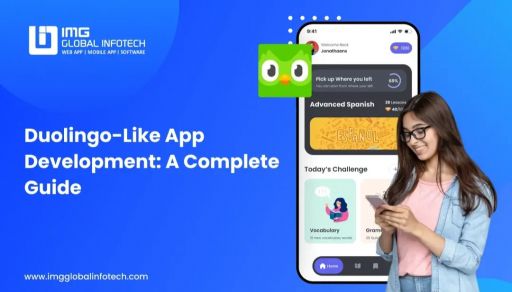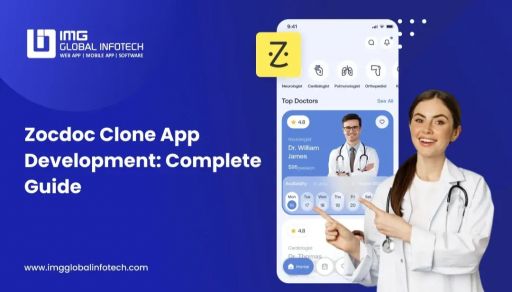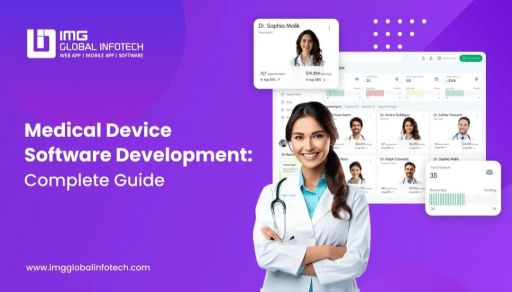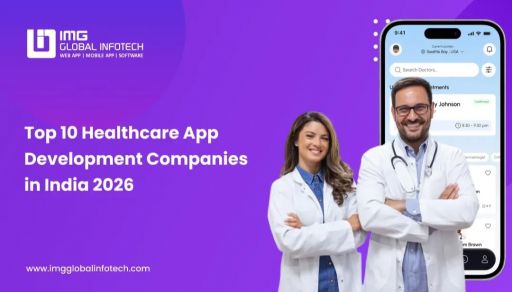Most Popular Mobile App Development Frameworks In 2026
Lokesh Saini
Oct 14, 2022

When it comes to building a mobile app, choosing the right mobile app development framework is key. With so many options available, it can be difficult to decide which one suits your needs best. That’s why we’ve compiled a list of the best mobile app development frameworks used by top developers worldwide.
Whether you're starting from scratch or improving an existing app, successful mobile app development requires deep research, a solid strategy, proper planning, and a good understanding of today’s digital landscape.
Although native apps offer great performance and design, they are often expensive to build and maintain. Plus, reaching users across multiple devices and platforms can be tough.
That’s where modern cross platform app frameworks come in. These allow businesses to build high-performing apps for web, hybrid, or multiple mobile platforms at a much lower cost without compromising on user experience.
What is a Mobile App Framework?
Mobile apps are one of the most powerful tools for businesses to reach and engage their customers. With fresh app ideas always emerging, mobile development continues to thrive across various industries.
The best part? You don’t need to master complex coding languages to build an app anymore. Today, there are many mobile app development frameworks available for both iOS and Android. With basic knowledge of HTML, CSS, or JavaScript, you can start creating a fully functional app.
In simple terms, a mobile app framework is a development platform that offers essential tools like libraries, compilers, debuggers, and APIs. Developers use these tools to write the app’s source code and compile it for different mobile devices with ease.
Best Mobile App Development Frameworks of 2026 for Fast and Efficient App Building
In 2026, the best mobile app development frameworks offer powerful features that improve speed, performance, and development efficiency. These frameworks come with built-in tools such as compilers, debuggers, and UI toolkits, allowing developers to build high-quality apps with less effort.
By using reliable development platforms, businesses can create apps that are fast, responsive, and user-friendly. Partnering with an experienced mobile app development company can further enhance app quality and user experience.
One of the most popular choices today is the Flutter Framework, known for its ability to deliver smooth performance across Android and iOS using a single codebase. Tools like Flutter simplify the development process and help bring mobile app ideas to life faster.
Types of Mobile App Frameworks
Mobile apps come in various types, depending on how they operate across different platforms like Android, iOS, and Windows. While apps may serve different purposes from shopping to messaging the way they are developed and used classifies them into three main categories:
1. Native Apps
Native apps are built specifically for a single operating system, such as Android, iOS, or Windows. These apps take full advantage of the device’s hardware features like RAM, GPS, camera, and sensors. They typically offer high performance and seamless user experiences.
2. Web Apps
Web apps are browser-based applications that do not require installation. These apps run through internet browsers and are stored on remote servers. Common examples include email platforms, blogs, online stores, auctions, and chat applications.
3. Hybrid Apps
Hybrid apps are mobile applications that are installed on smartphones just like any other app. What makes them unique is that they combine elements of both native and web apps. This gives developers more flexibility while keeping development costs lower.
These apps are often built using a mix of native app frameworks and hybrid app frameworks, allowing developers to write code once and deploy it across multiple platforms.
While native apps deliver the highest quality in terms of design and performance, they can be expensive to develop for each operating system individually. Reaching maximum user engagement across various platforms also becomes challenging.
That’s why businesses often choose hybrid or cross-platform development, especially when they want to reduce costs and reach a wider audience. Technologies like the Laravel Framework can be used on the backend to ensure performance, scalability, and faster time to market.
List of Top 10 Mobile App Development Frameworks in 2026
Here are some of the leading modern mobile app development frameworks that are widely used in 2026. These frameworks are highly effective for building apps on both Android and iOS platforms.
1. React Native
React Native, developed and maintained by Facebook, is one of the most popular cross-platform mobile app development today. It allows developers to build apps for both Android and iOS using a single codebase, making it a preferred choice among programmers.
Major companies like Tesla, Airbnb, Skype, and Amazon Prime have built their apps using React Native, showcasing its power and flexibility. The framework supports creating platform-specific versions of app features, enabling better customization without writing separate code from scratch.
Unlike traditional React (for web), React Native doesn’t interact with the DOM. Instead, it runs JavaScript code in the background and communicates with native components using an asynchronous, batched bridge.
While React Native Mobile App Development uses JavaScript, it does not support HTML or CSS. Instead, it uses a CSS-like syntax for styling. Developers can also write native code in platform-specific languages like Swift or Objective-C for iOS, and Java or Kotlin for Android. Microsoft also maintains support for React Native for Windows and React Native for macOS.
One of the main advantages of React Native is its ability to speed up development. Features like reusable components, integration with third-party plugins, and a component-based GUI make it ideal for building high-performance mobile applications.
Key Features of React Native:
-
High performance on both iOS and Android
-
Reusable components for faster development
-
Supports third-party plugin integration
2. Flutter
Flutter is a free and open-source framework developed by Google that helps developers build native-quality apps for both Android and iOS using a single codebase. It stands out in the world of cross-platform app development due to its unique approach to creating beautiful, high-performing apps.
Flutter App Development is known for delivering a native-like user experience while speeding up the development process. It provides a complete SDK that includes customizable widgets, a fast rendering engine, built-in debugging tools, APIs, and everything needed to create visually appealing mobile apps.
Trusted by top brands like Google and Abbey Road Studios, Flutter continues to gain popularity among developers worldwide.
Key Features of Flutter:
-
Faster development with a single codebase
-
Works across multiple platforms
-
Rich, attractive, and interactive UI
-
Near-native performance on both iOS and Android
3. Xamarin
Xamarin is a powerful cross-platform mobile app development framework used to build apps for Android and iOS. It uses the C# programming language, which helps developers write less code and speed up the development process. Additionally, it supports easy code sharing across other platforms like Windows and macOS.
Now owned by Microsoft, Xamarin is well integrated with Visual Studio, making it easier to manage projects and improve productivity. Despite its faster development cycle, Xamarin does not compromise on performance. Apps built with Xamarin offer the look, feel, and functionality of native applications.
Xamarin works through an intermediate layer that handles communication between platform-specific code and shared code. Its strong developer community and rich ecosystem of tools, APIs, and components make it a reliable choice for businesses and developers.
Key Features of Xamarin:
-
Fast development with C# and shared codebase
-
Native look and feel for both iOS and Android
-
Works well across a wide range of devices
4. Swiftic
Swiftic is a user-friendly, do-it-yourself mobile app development platform designed to help anyone create custom apps for their business with no advanced coding required. Instead of starting from scratch, developers can pull existing content from the web and turn it into a functional mobile app quickly.
Known for its flexibility and ease of use, Swiftic provides a smooth user experience and supports essential business features like in-app purchases, push notifications, and customer engagement tools. It also offers tools for app promotion and monetization.
One of Swiftic’s standout advantages is its unified control panel, which lets users design, launch, and manage their app from one place making it ideal for small businesses and startups.
Key Features of Swiftic:
-
30-day money-back guarantee on plans
-
Easy-to-use interface with simple navigation
-
Strong integration with third-party tools and platforms
5. Ionic
Ionic is a popular open-source framework used to build Progressive Web Apps (PWAs), hybrid apps, and cross-platform mobile applications. It is built on top of Angular and works alongside Apache Cordova (formerly PhoneGap), making it easy for developers to create apps that run smoothly on both Android and iOS.
Ionic is known for helping developers build high-quality, feature-rich mobile apps with a consistent and modern user interface. One of its key strengths is the wide range of pre-built UI components it offers, such as input fields, filters, navigation menus, and action sheets saving developers time and effort during the development process.
Key Features of Ionic:
-
Supports app development across multiple platforms
-
Delivers a consistent and responsive user interface
-
Improved performance for hybrid apps
-
Highly flexible for various design and functionality needs
6. Apache Cordova
Apache Cordova, formerly known as PhoneGap, is a widely used and developer-friendly cross-platform mobile app development framework. It allows developers to build apps using standard web technologies like HTML5, CSS3, and JavaScript.
Cordova is especially useful for accessing native device features such as the camera, GPS, and accelerometer through plugins, helping developers create apps with a native-like experience. One of its biggest advantages is the ability to write a single codebase and deploy it across multiple platforms, reducing both time and development costs.
Key Features of Apache Cordova:
-
Single codebase for multiple platforms
-
Faster app development cycle
-
Support for third-party tools and app management solutions
7. jQuery Mobile
jQuery Mobile is a lightweight, cross-platform mobile app development framework used to create responsive and platform-independent web and mobile applications. Built with JavaScript and HTML5, it allows developers to design flexible apps that work seamlessly across smartphones, tablets, and desktop devices.
The framework uses a strong HTML5 foundation and offers a tool called ThemeRoller, which enables the creation of custom themes for web and mobile interfaces. jQuery Mobile is available in both a stable version and a customized version, giving developers flexibility based on their project needs.
Key Features of jQuery Mobile:
-
Compatible with PhoneGap and other development tools
-
Lightweight framework with minimal file size
-
Broad and simple API compatibility across platforms
8. NativeScript
NativeScript is an open-source framework used to build truly native mobile applications using technologies like Angular, TypeScript, JavaScript, Vue.js, and CSS. Developed by Progress, NativeScript allows developers to write apps using web development skills while still delivering a native performance and experience.
It uses the npm package manager to install NativeScript and its required plugins. Apps can be created and managed either through the command line or using a visual development tool called NativeScript Sidekick.
NativeScript uses XML files to define platform-independent user interfaces, which are then translated into native UI components for Android and iOS. The business logic, written in Angular or TypeScript, is separated from the target platform, making development more efficient.
This framework is ideal for reducing development time and maintaining code consistency across platforms.
Key Features of NativeScript:
-
Native UI rendering without relying on Web Views
-
Full access to Android and iOS APIs
-
Supports cross-platform development
-
Backed by strong tools for mission-critical enterprise apps
-
Powerful backend integration and support
9. Sencha Ext JS
Sencha Ext JS is a powerful cross-platform mobile development framework designed to build data-rich web and mobile applications. Originally developed as an extension of YUI by Jack Slocum, it was later merged with Sencha to form what is now known as Sencha Ext JS.
This JavaScript-based framework is ideal for creating apps that handle large amounts of data. It includes over 115 high-performance, pre-built UI components such as grids, trees, pivot grids, D3 visualizations, calendars, panels, and toolbars. Sencha also offers customizable themes to style these elements, which can be modified using CSS and scripting.
Ext JS supports two toolkits: Modern and Classic, each with its own themes and API structure. Developers may need to rebuild apps using Sencha CMD when switching themes or updating configurations.
Key Features of Sencha Ext JS:
-
Efficiently handles large datasets
-
Advanced analytics and data visualization tools
-
Flexible and responsive layout system
-
Graphical presentation of complex data
-
Integrated D3-based data-driven documents support
10. Onsen UI
Onsen UI is a highly effective mobile app development framework used to build complex and feature-rich mobile applications. Known for its flexibility and speed, it allows developers to create stunning HTML-based apps using JavaScript, HTML, and CSS.
One of the standout features of Onsen UI is its support for popular libraries and frameworks like AngularJS, Angular 2+, React, and Vue. With version 2, it became framework-agnostic meaning developers can now build apps with or without relying on a specific JavaScript framework.
Onsen UI comes with a wide range of UI components, such as tabs, navigation stacks, lists, and forms. These components are automatically styled to match the platform (iOS or Android), allowing you to use the same codebase for both systems.
As an open-source solution, Onsen UI is ideal for building native-feeling Progressive Web Apps (PWAs) and hybrid mobile apps that are both time and cost-efficient.
Key Features of Onsen UI:
-
Quick setup and easy learning curve
-
Supports major JavaScript frameworks or works without one
-
Fast and cost-effective mobile app development
-
Built-in grid layout for smooth UI structuring
-
Auto-detects platform, screen rotation, and gestures
Key Takeaways
Our mobile app development experts have carefully selected the frameworks listed above based on performance, flexibility, and future-readiness. These modern tools are set to transform how businesses build mobile apps as we move into 2026 and beyond.
If you're planning to develop a mobile application, these top-rated frameworks are worth considering. They offer everything needed to create powerful, scalable apps across Android App and iOS platforms.
Now is the perfect time to bring your app idea to life. With the right concept and a reliable development partner, success is well within reach.
At IMG Global Infotech, we specialize in crafting cutting-edge mobile solutions tailored to your business needs. Whether you're launching a new app or upgrading an existing one, we’re here to turn your vision into reality.
Contact IMG Global Infotech today to discuss your project and explore how we can support your mobile app development journey.
-
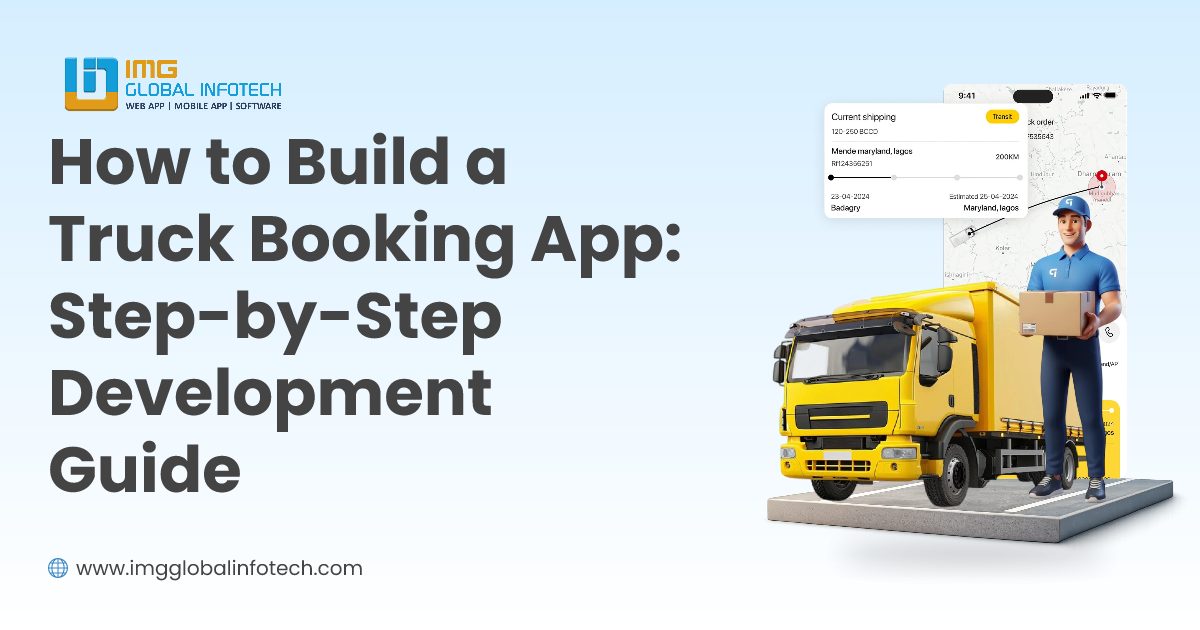 How to Build a Truck Booking App: Step-by-Step Development Guide
How to Build a Truck Booking App: Step-by-Step Development Guide
-
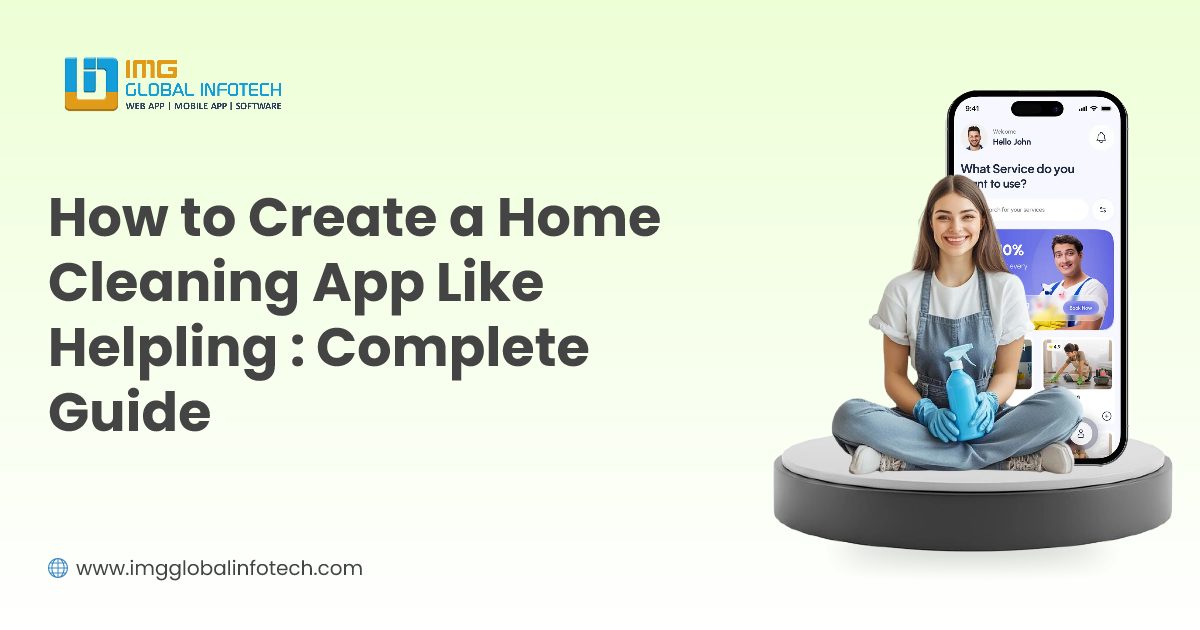 How to Create a Home Cleaning App Like Helpling : Complete Guide
How to Create a Home Cleaning App Like Helpling : Complete Guide
-
 Top 10 Flower Delivery Apps in 2026
Top 10 Flower Delivery Apps in 2026
-
 Top Generative AI Trends in 2026: A Complete Industry Guide
Top Generative AI Trends in 2026: A Complete Industry Guide
-
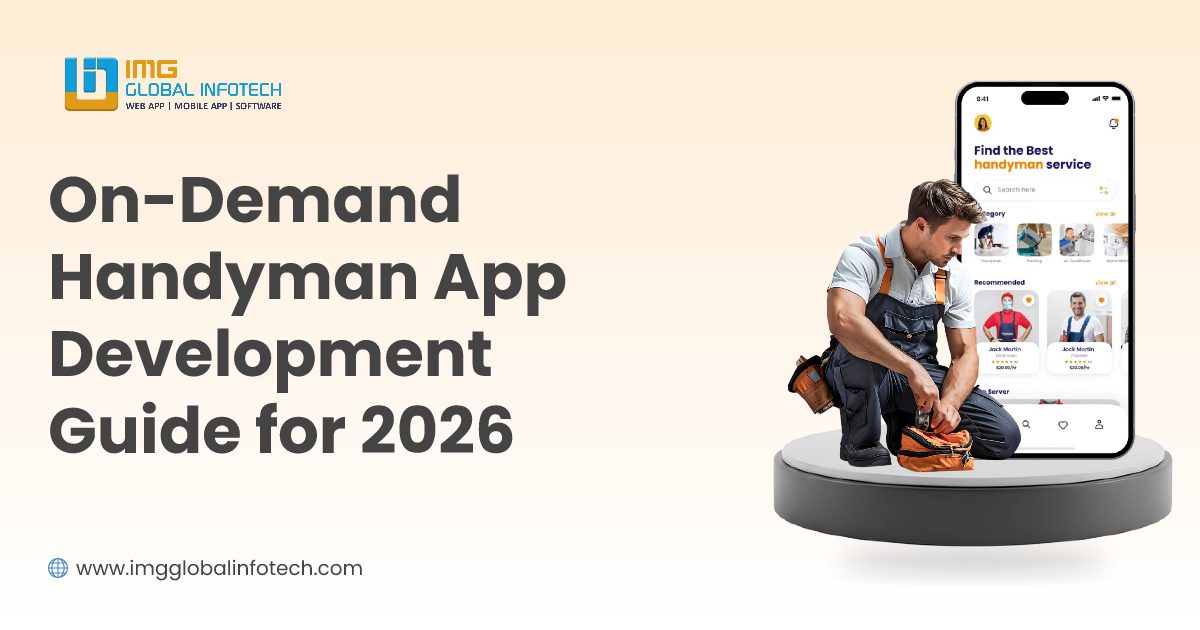 On-Demand Handyman App Development Guide for 2026
On-Demand Handyman App Development Guide for 2026
-
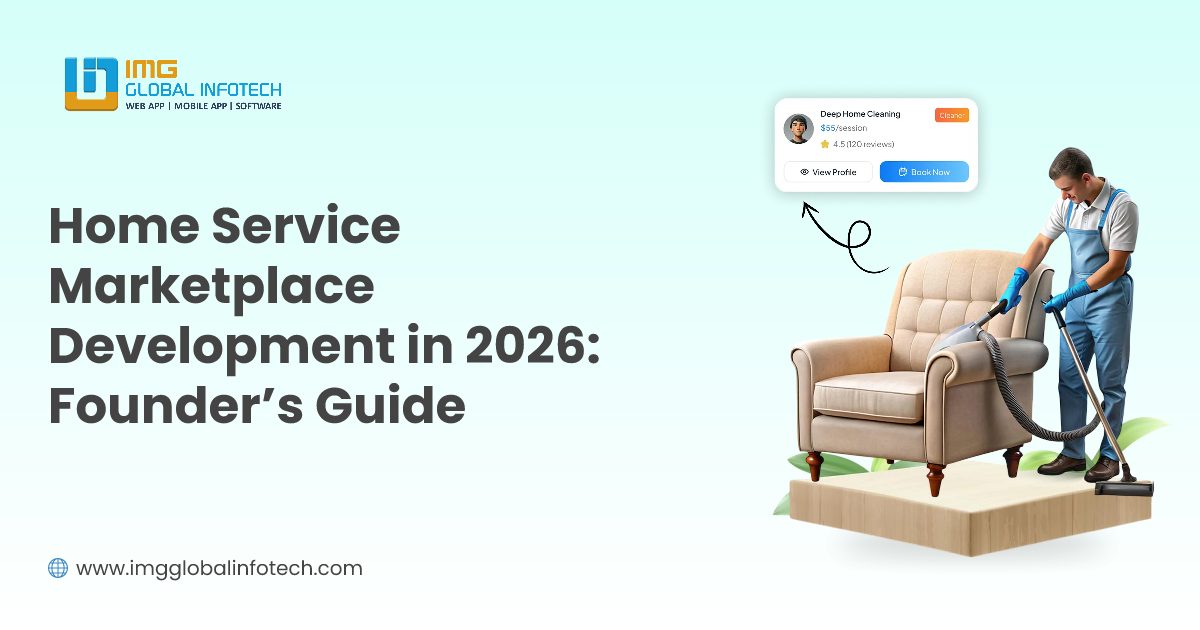 How to Build a Home Service Marketplace in 2026: Founder’s Guide
How to Build a Home Service Marketplace in 2026: Founder’s Guide
Lokesh Kumar is the Digital Marketing Manager & SEO Content Strategist at IMG Global Infotech, a top-rated Web & Mobile App Development Company. With extensive experience in digital marketing, SEO, and content strategy, he specializes in boosting online visibility and driving organic growth for startups, SMEs, and global brands. Lokesh is passionate about creating SEO-friendly, user-centric content that not only ranks but also converts. His deep understanding of digital trends and search algorithms helps businesses thrive in a competitive online space.


